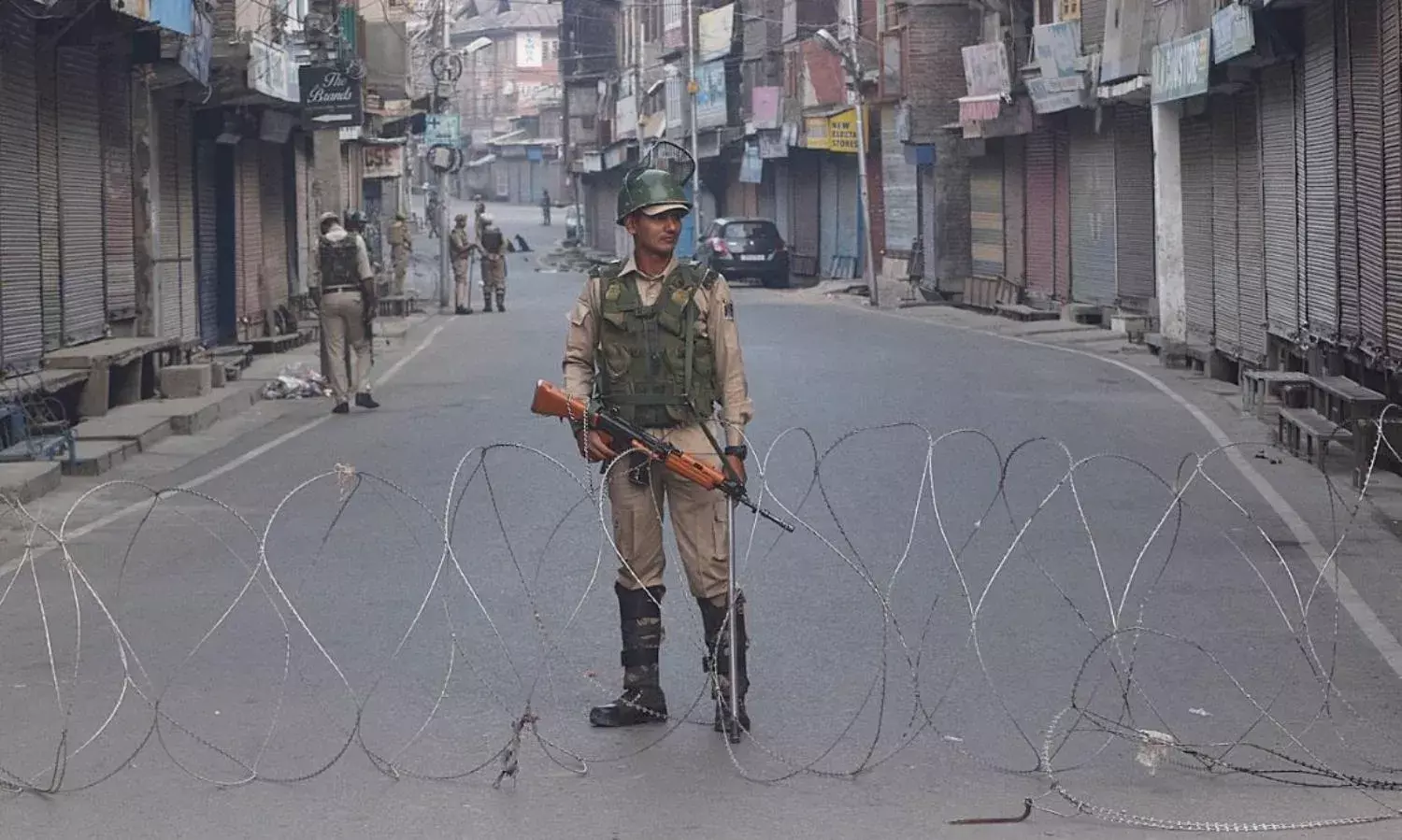This Guillotine Atmosphere of No Dissent
How does one narrate his own tragic tale?

The message on my friend’s WhatsApp read, ”I haven’t seen such miserable days in my life, where one’s parents were allowed to talk for one minute and the call would disconnect at 58 seconds, and they would keep saying from the other side, ‘esi chi theek che hes ne tension’ (We are all alright you don’t panic).”
And my friend said she kept calling, crying, waiting for her mother’s call the next time and it’s been 15 days since I last heard my mother’s voice.
Living outside Kashmir the past month has been by far the greatest ordeal of one’s life, practising patience, chaotic stress, raged emotions and the beleaguered test of time. Also the acceptance of a failure to do nothing with equanimity.
The last time any Kashmiri faced such sleepless nights and uncouth days was back in the 2014 floods, where nature inflicted an ordeal on us.
Having said all this, Kashmir since the clampdown 50 days back has seen an unprecedented total blackout of all points of the communication system. This communication blackout in any democratic welfare state is hard to identify, especially when Parliament’s decision has been advocated as the harbinger of peace and panacea of development for Kashmir.
Paradoxically the blackout hits out at their own claims, when they project it as being in consonance with the aims and aspirations of the people of Kashmir in particular.
What does the common Kashmiri think?
A rusty jittered confined Kashmiri, ridden within the mortuary of his own misfortunes, thinks he is the most unfortunate person in the whole world, living for sake of conformity to ideologies being forced upon him by both India and Pakistan, and being treacherously played by the politicians of the state.
For her the scrapping of Article 370 means the alienation has manifolded, the Indianness that remained has withered, and her identity which was unique is tormenting, tantalising and slowly becoming history.
Essentially, Kashmiris who viewed mainstream Kashmiri leaders as pro-Indian opportunitists who always thrived to sustain their own social, economic and political aspirations, and were flagbearers of the democratic process in Kashmir… are now being subjected to such use of force and face an existential threat. This further complicates the process.
Kashmiris must face a dilemma: whether it’s a drama staged by stooges, or a political gimmick, or an instrument of authoritarianism, or an impending existential threat? It’s something that needs to be seen.
Days turn into weeks and weeks into months now, and the crackdown on leaders and the youth, the communication clampdown, no schools and no colleges, no tourism and no business mark the end of days, particularly in Kashmir.
The way out. The government has its task cut out in J&K. With the bifurcation of the state into union territories, the anguish and the arrogance consuming the people of Kashmir needs a vent, and it remains to be seen whether it will be a volcano of anger that erupts, or bubbles of lost hope that will vaporise, in this guillotine atmosphere of no dissent.
To prevent further ground level escalation and crush the rumours, the government should prioritise the opening of communication levels, encourage people to people contacts, boost confidence building measures, and initiate manifold discussions with civil society.
Things mustn’t get worse. A mother hasn’t talked to her daughter studying in other Indian states, a child hasn’t heard from his father working in the districts of faraway Indian states, a brother hasn’t wished his sister on her birthday… All these are your collaborators of peace, and tools to bridge the growing alienation.
Working for peace in Kashmir is the hardest thing to do. Atal Bihari Vajpayee’s ‘insaniyat, jamhooriyat, kashmiriyat’ (Humanity, Democracy, Kashmirness) was hope against all odds in acceding to the fact that Kashmir must be handled on humanitarian grounds, reinforced with democratic values, by safeguarding the rights and privileges of perhaps the most drought and war torn people in the world.
The current scenario contradicts the BJP’s own ideologue.
The paradox of ‘Who venerates Vajpayee and who negates him’ has been created. This is perplexing and will create a vacuum so far as how Kashmiris viewed the BJP under Vajpayee and and how they view it under Modi.
Kashmir as land is yours now. Can you own its people?
It’s the cruellest question.
Tahir Ahmad is a Kashmiri freelance writer and practising maxillofacial surgeon.
(Cover Photo: BASIT ZARGAR for The Citizen)



